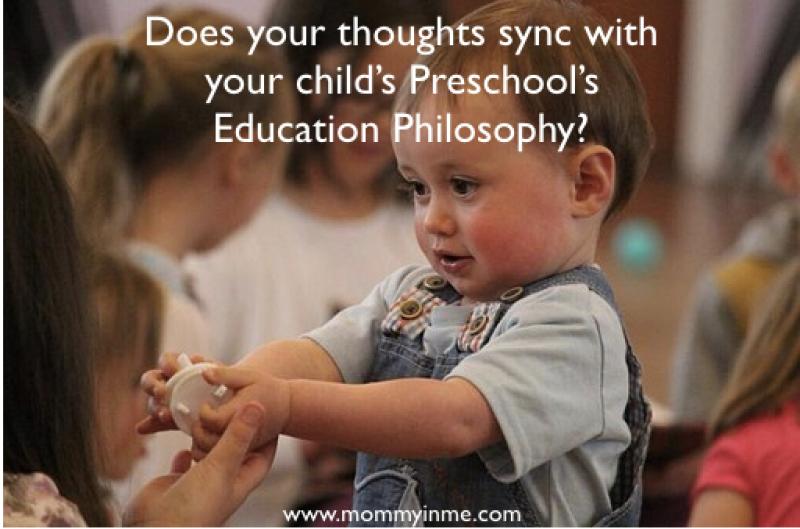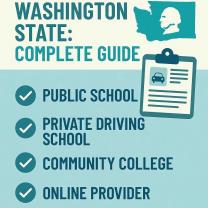What should a parent look for in a good preschool?
Choosing a preschool is an important decision that can significantly impact your child's early learning experiences. Here are some qualities and factors that parents may consider when looking for a good preschool:
Safety and Cleanliness:
- Ensure that the preschool provides a safe and clean environment. Check for childproofing measures, secure entry and exit points, and cleanliness of classrooms and play areas.
Qualified and Caring Staff:
- Look for a preschool with well-trained, experienced, and caring teachers and staff. Teachers should have appropriate early childhood education qualifications and certifications.
Low Teacher-to-Child Ratio:
- A low teacher-to-child ratio allows for more individualized attention and better supervision. Smaller class sizes contribute to a more supportive learning environment.
Play-Based Learning:
- Preschools that emphasize play-based learning provide children with hands-on experiences that promote social, emotional, and cognitive development. Play is an essential component of early childhood education.
Structured and Flexible Activities:
- A good preschool strikes a balance between structured activities and free play. Structured activities help children develop important skills, while free play fosters creativity and imagination.
Age-Appropriate Curriculum:
- The curriculum should be age-appropriate, engaging, and aligned with early childhood development principles. It should cover a variety of domains, including cognitive, social, emotional, and physical development.
Inclusive Environment:
- Look for a preschool that promotes inclusivity and celebrates diversity. An inclusive environment ensures that all children feel welcome and supported, regardless of their background or abilities.
Clear Communication:
- Effective communication between parents and teachers is crucial. A good preschool keeps parents informed about their child's progress, daily activities, and any concerns that may arise.
Parental Involvement:
- A preschool that encourages parental involvement fosters a sense of community. This involvement can take the form of parent-teacher conferences, volunteer opportunities, and family events.
Nutritious Meals and Snacks:
- If the preschool provides meals or snacks, ensure that they are nutritious and meet appropriate health standards. Consider any special dietary needs your child may have.
Positive Discipline Practices:
- Understand the discipline policies of the preschool. Look for an environment that promotes positive discipline and encourages children to learn from their experiences.
Outdoor Play Area:
- An outdoor play area is essential for physical development and allows children to engage in active play. Ensure that the outdoor space is safe and well-maintained.
Licensing and Accreditation:
- Check if the preschool is licensed and, if possible, accredited by relevant educational organizations. Licensing ensures that the facility meets certain standards and regulations.
References and Reviews:
- Seek recommendations from other parents, and read reviews or testimonials about the preschool. Personal experiences can provide valuable insights into the quality of the program.
Visiting potential preschools, observing classrooms, talking to teachers, and asking questions about the curriculum and policies will help you make an informed decision based on your child's needs and your family's values.
When assessing a preschool for a child, it's essential to consider various factors that contribute to a positive and nurturing learning environment. Here are some crucial aspects to evaluate:
Child-Centered Curriculum: A good preschool should focus on a child-centered curriculum that promotes exploration, creativity, and hands-on learning. This approach allows children to discover and develop their interests and abilities at their own pace.
Qualified and Caring Teachers: Experienced and dedicated teachers play a vital role in a child's preschool experience. They should be well-versed in early childhood development and have a genuine passion for working with young children.
Supportive and Inclusive Environment: The preschool should foster a supportive and inclusive atmosphere where all children feel valued and respected. This includes promoting diversity, equity, and inclusion among children and families.
Safe and Stimulating Learning Space: The physical environment should be safe, clean, and organized, offering age-appropriate toys, equipment, and materials that stimulate learning and exploration.
Positive Interactions and Relationships: Observe how teachers interact with children. Look for positive reinforcement, encouragement, and opportunities for children to express their thoughts and feelings.
Parent-Teacher Communication and Involvement: A good preschool values open communication and collaboration with parents. Parents should feel comfortable discussing their child's progress, concerns, and suggestions.
To evaluate the quality of education in a preschool, parents can consider the following:
Curriculum and Learning Activities: Inquire about the preschool's curriculum and the types of learning activities offered. Observe how teachers engage children in activities that promote social, emotional, cognitive, and physical development.
Assessment and Progress Tracking: Ask how the preschool assesses children's progress and how parents are informed about their child's development.
Professional Development and Training: Inquire about the preschool's commitment to professional development and training for their teachers.
Observations and Interactions: Visit the preschool and observe how teachers interact with children during playtime, circle time, and other activities.
Parent Testimonials and Feedback: Seek feedback from other parents who have enrolled their children at the preschool. Their experiences can provide valuable insights into the school's overall environment and quality of education.
The key characteristics of a good preschool environment include:
Nurturing and Responsive Care: Children should feel safe, secure, and cared for by their teachers. Teachers should be responsive to children's needs, providing emotional support and guidance.
Structured and Playful Learning: The preschool should balance structured learning activities with ample opportunities for unstructured play. Play is essential for children's social, emotional, and cognitive development.
Individualized Attention: Teachers should recognize and address the individual needs and learning styles of each child.
Enriching and Engaging Activities: The preschool should provide a variety of age-appropriate activities that stimulate children's curiosity and encourage exploration.
Positive and Respectful Interactions: Children should be encouraged to interact with each other in a positive and respectful manner, fostering social and emotional growth.













